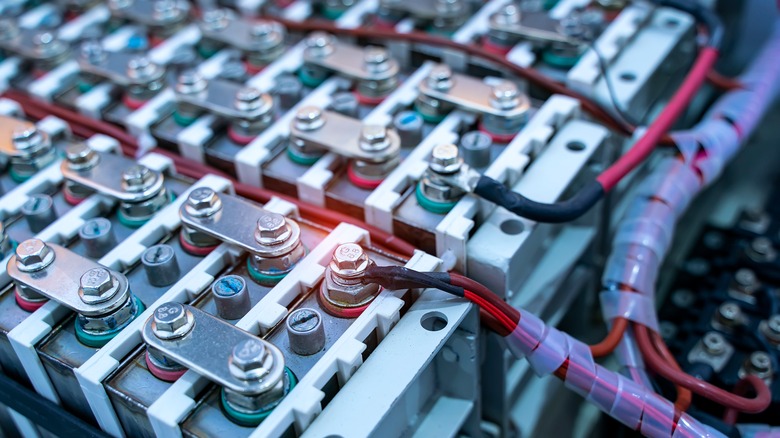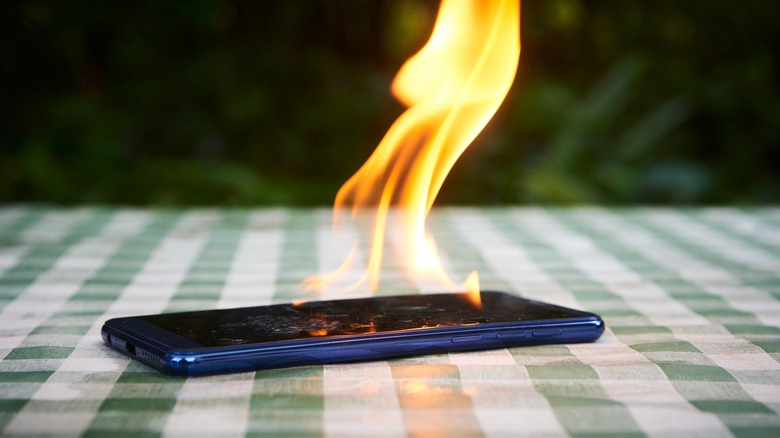Explained: The Reason Behind Lithium Batteries Catching Fire
Lithium-ion batteries, or "Li-ion" for short, are one of the most ubiquitous forms of portable power in the world today. Most handheld devices like smartphones use Li-ion batteries, though scaled-up Li-ion batteries have also been used in various electrical vehicles. The fact that they're rechargeable makes them much more efficient than traditional, disposable batteries, and for the most part, they're a very safe technology. However, they do have one major flaw that's been made more apparent in recent years.
In certain circumstances, Li-ion batteries have been known to suddenly catch fire. While not a common occurrence, instances of lithium fires have been frequent enough in the last few years that firefighting and rescue agencies have started putting together specialized procedures for detecting and containing such fires. (It's why EVs catch fire too.) Of course, the best option is to prevent a fire from sparking up in the first place. So, what exactly causes a Li-ion battery to catch fire?
Thermal runaway
The major culprit in Li-ion battery fires is a chemical process known as thermal runaway. In layman's terms, thermal runaway occurs when, for one reason or another, something causes a spark inside the Li-ion battery's casing, leading to a chain reaction that eventually causes that casing to explode. That explosion can start a fire on its own, but in the worst-case scenario, if the battery is near flammable materials like cloth or oil, the fire can spread very quickly.
So why does this happen? A Li-ion battery's casing is airtight, holding electro-conductive gasses and chemicals. If the casing is compromised through physical damage or overheated from improper charging, the gasses are vaporized, and the case expands. When it reaches a critical point, it ruptures, releasing flammable fumes that can ignite violently. If the battery in question was in a smartphone, for instance, the phone would most likely explode.
Containing a lithium fire
Li-ion fires are an extremely rare occurrence, but they can happen under the right circumstances. Generally, a fire can spark up in a battery that hasn't been properly cared for. If the battery has been subject to regular physical damage or high heat, the likelihood of a fire increases. Ergo, to prevent a fire, be gentle with devices containing Li-ion batteries and only charge them with compatible charging cables. You should also try not to leave devices on charge for longer than necessary, even if they have automatic disconnection features.
In the event a lithium fire occurs, it should be handled like most emergency fire situations. Extinguish the flame with a chemical fire extinguisher and move the device away from flammable materials (fabrics, oils, other Li-ion devices, etc.). Be aware that even if you extinguish the fire, it can spark back up, especially if the device has more than one battery. Call your local fire department to have them come and dispose of the device properly.


